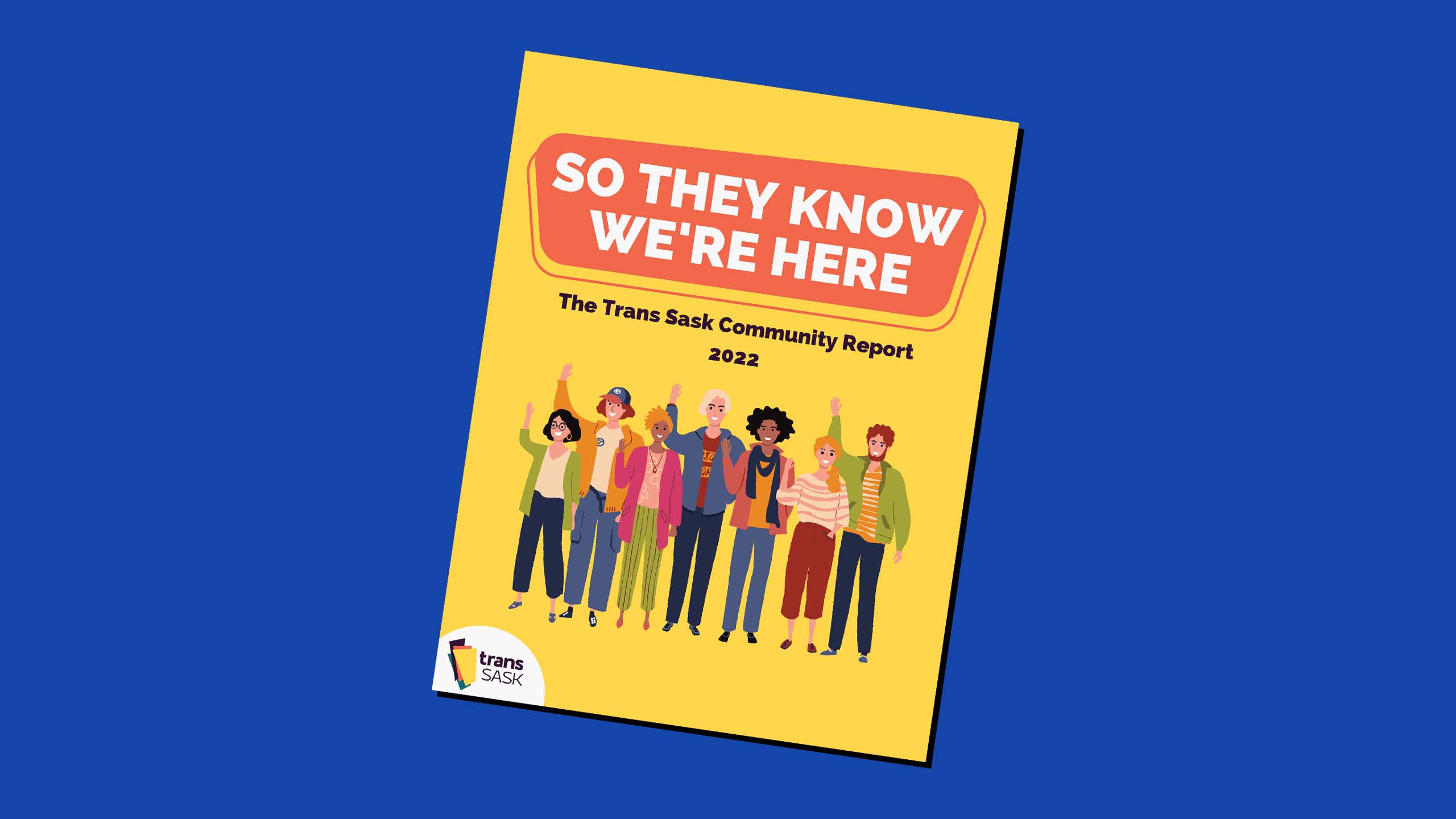A trans-led non-profit organization in Saskatchewan has published the first community report on trans people in the province.
Trans Sask’s report, So they know that we’re here: The Trans Sask Community Report, which gathered data from over 200 participants in Saskatchewan over the course of a year, was generated by a team of queer, trans and non-binary researchers within the community. “Data like this is often extracted from us by those outside of our community,” reads the report’s introduction, “and we wanted to share these experiences with breadth and intentionality.”
“As far as I know, there are no groups doing similar [province-wide] studies,” Tiberius Fayant-McLeod, research manager at Trans Sask, told Xtra by email. “Now that we have Saskatchewan-specific data, we hope it will be easier to advocate for what we need to improve the quality of our lives.”
The organization, which received funding from Women and Gender Equality Canada—a government department that supports gender equity efforts—to complete the study, has produced a 95-page report, and a 55-page executive summary that are now available to read.
Detailed data on the trans community, in general, are rare in Canada. Trans PULSE, a community-based research project, has run surveys since 2005, and releases several reports each year that often focus on access to affirming healthcare. And the Canadian Trans and Non-Binary Youth Health Survey, which was last collected in 2019, surveyed 1,519 youth nationwide.
Many of these large reports share similar findings, such as the need to lower wait times and increase access to affirming care; that there are too many barriers associated with changing gender markers on paperwork; and that racism presents additional hurdles in accessing gender-affirming care for Indigenous people.
Trans Sask’s report had 11 key findings, which included struggles with the local healthcare system and bureaucracy. Indigenous participants had more unmet needs than non-Indigenous participants, highlighting the need for “competent cultural and gender-affirming supports in healthcare, educational and cultural settings.”
The report also found that almost half of respondents said that they had avoided applying for jobs due to their gender. Significant proportions of respondents worked in healthcare and social assistance (16.6 percent), retail (13.7 percent) or information, cultural and recreation (13.2 percent). “Gender-inclusive work policies and practices” could boost employment rates and help build equity in the workplace, the report suggests.
Other findings were more revealing of the nature of the broader trans community in Saskatchewan. For instance, almost 40 percent of respondents identified as non-binary and/or gender-fluid, showing many trans people experience gender as a spectrum; and respondents knew they were not cis by age 14.5 on average, even if they did not have the vocabulary for it, or it took them many more years to come out.
There were also considerably more intersex respondents (2.9 percent with an official diagnosis, 14.7 percent with a sex characteristic that “do[es] not fit standard definitions of male or female) to the survey than the 1.7 percent of the general population as estimated by the United Nations. While the report’s sample size is too small to draw any sweeping conclusions, this suggests there may be more intersex people than are usually reported.
One of the other takeaways is that trans, non-binary and Two-Spirit people are choosing to live or stay in Saskatchewan. The 2021 census report suggested that 2,530 trans or non-binary people lived in Saskatchewan, accounting for 0.29 percent of the population—lower than the national average of 0.33 percent. But respondents told researchers that there were benefits to living in the province.
“I came back here to be closer to family and resources and such for mental health help, and whatnot,” said one anonymous respondent, quoted in the report. “So that’s what brought me back here, really. And then it’s nice sometimes that it’s small.”
Fayant-McLeod said that the majority of respondents said they “would rather live in Saskatchewan than any other province,” which could speak to strong connections to the local community.
“Being the most politically conservative province in Canada, it seems almost counterintuitive, but the reality is our friends and families are here, and when most of us have grown up in smaller cities or towns, the metropolitan life doesn’t necessarily have the same appeal to us,” they said.
“I hope that this is a wake-up call to people in Saskatchewan that we need to be making changes now in the province to create better lives for [Two-Spirit, trans, non-binary and gender nonconforming] people, because we have always been here and we always will be.”


 Why you can trust Xtra
Why you can trust Xtra


